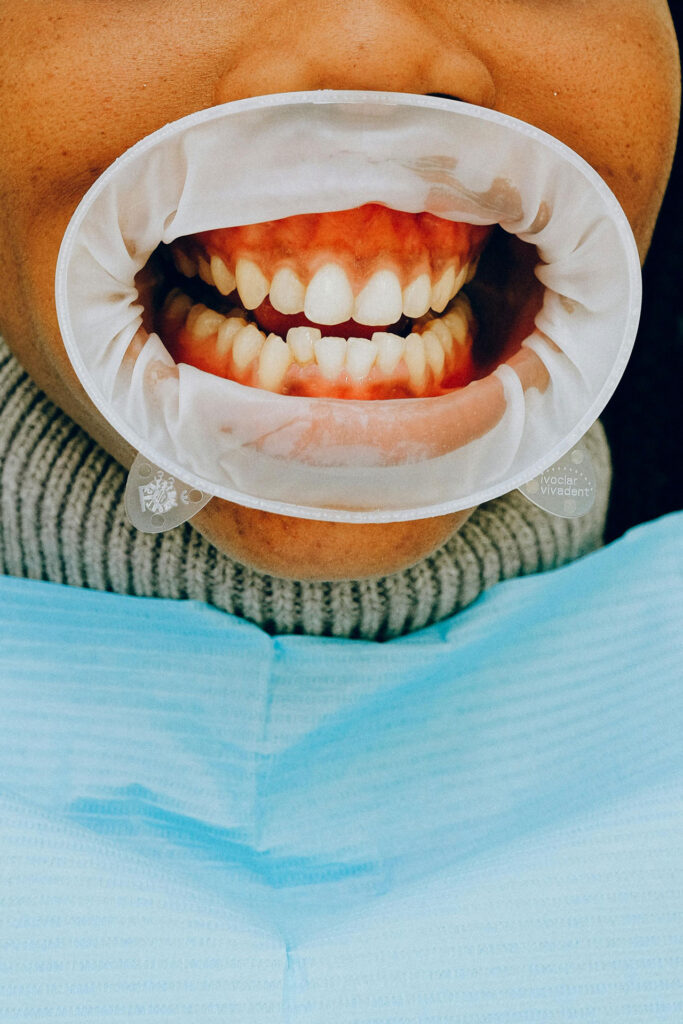
Services

How does Oral Pathology Work?
Oral pathology involves the diagnosis and treatment of diseases that affect your mouth, gums, jaws, and related structures such as salivary glands, temporomandibular joints, facial muscles, and perioral skin (the skin around your mouth).
Benefits
Early Detection and Prevention
Regular evaluations allow for early detection and treatment of oral health issues, preventing complications like infections, tooth loss, and the spread of disease.
Pain Relief and Improved Quality of Life
Proper diagnosis and treatment of oral pathologies can alleviate discomfort and pain, significantly enhancing your overall quality of life.
Peace of Mind
Monitoring your oral health and addressing issues promptly provides peace of mind, reducing anxiety about potential problems and ensuring your well-being.
How will it work?
The doctors at EOS will formulate a specific treatment plan to address any concerns related to possible pathology of your mouth, gums, jaws, and related structures. Your treatment will include the following steps.

Initial Examination
Our oral surgeon will conduct a thorough examination of your mouth, which may include taking medical history, discussing symptoms, and visually inspecting the oral cavity.
Diagnostic Tests
Depending on the initial findings, additional tests such as X-rays, biopsies (sampling of tissue), or other imaging techniques may be necessary to get a clearer picture of the issue.
Review of Biopsy Results
Based on the results, we will discuss the diagnosis with you, explaining the condition in simple terms and outlining possible treatment options.
Review Treatment Options
Medications: For infections or inflammations, medications such as antibiotics, antifungals, or anti-inflammatory drugs may be prescribed.
Surgical Procedures: Some conditions may require minor surgical interventions to remove cysts, tumors, or other abnormal growths.
Follow-Up Care: Post-treatment, regular follow-up visits ensure that the condition is resolved and helps prevent recurrence. Our team will provide detailed care instructions and be available for any questions or concerns.
Frequently
Asked Questions
Dui ut ornare lectus sit amet est placerat. Mattis pellentesque id nibh tortor id.
What is oral pathology?
Oral pathology is the study and treatment of diseases and conditions that affect the mouth, jaws, and related structures. This can include anything from infections and tumors to cysts and lesions.
What are common signs of oral pathology?
Common signs include:
- Persistent mouth sores
- Unexplained lumps or growths
- Red or white patches
- Chronic sore throat or hoarseness
- Difficulty swallowing
- Persistent bad breath
When should I see a specialist for oral pathology?
You should see a specialist if you notice any unusual changes in your mouth that do not go away within two weeks, such as persistent sores, lumps, or patches. Early evaluation can be crucial for successful treatment.
How is oral pathology diagnosed?
Diagnosis typically involves a thorough examination of your mouth. This may include:
- Visual inspection
- Palpation (feeling for lumps or abnormalities)
- Biopsy (removing a small sample of tissue for lab analysis)
- Imaging tests like X-rays, CT scans, or MRIs
What is a biopsy and why is it necessary?
A biopsy is a procedure where a small piece of tissue is removed from a suspicious area in your mouth. It is necessary to determine the exact nature of the abnormality, whether it is benign (non-cancerous) or malignant (cancerous), and to guide the appropriate treatment.
What treatments are available for oral pathology?
Treatment depends on the specific diagnosis but may include:
- Medications (antibiotics, antifungals, or antiviral drugs)
- Surgical removal of cysts, tumors, or lesions
- Radiation therapy or chemotherapy for malignant conditions
- Follow-up care to monitor the condition and prevent recurrence
Is oral pathology treatment painful?
Treatment procedures are typically performed with local anesthesia, so you should not feel pain during the procedure. Some discomfort or soreness may occur afterward, but this can usually be managed with over-the-counter pain relievers and proper post-operative care.
How can I prevent oral pathology?
Maintaining good oral hygiene, avoiding tobacco and excessive alcohol use, and having regular dental check-ups can help prevent many oral health issues. It’s also important to manage any underlying health conditions and report any unusual changes in your mouth to your dentist or doctor promptly.
Can oral pathology be a sign of oral cancer?
Yes, certain signs like persistent sores, lumps, or patches in the mouth can be early indicators of oral cancer. Early detection and treatment are crucial, which is why it’s important to see a specialist if you notice any unusual changes.
Where can I get more information or schedule an appointment?
For more information or to schedule an appointment, please contact our office at 952-452-9151, or schedule an appointment on our website. Our team is here to help you with any concerns or questions you may have.
Schedule an Appointment
Schedule a consultation with EOS to learn more about oral pathology.

